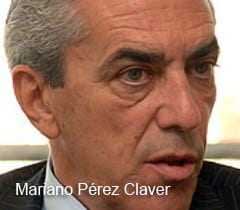By Julie Butler
Olive Oil Times Contributor | Reporting from Barcelona
Massive fraud involving inferior olive oil being sold as EVOO is the focus of an article in Spain’s El País newspaper today, Sunday December 5th.
Under a headline equivalent to “The Olive Oil Con”, Ginés Donaire reports that analysis of 50 batches being sold as extra virgin olive oil in Andalusia, in Spain’s south, found that half were actually of an inferior quality.
The Spanish market is currently more concerned with quantity than quality.
Andalusian officials were spurred to carry out the inspection because of
the “extraordinary low” price of some extra virgin olive oil being sold in the region. They are investigating further before naming the companies allegedly behind the fraudulent labeling.
While the inferior oil is said to be of no danger to consumers’ health, Spain’s olive oil industry is very concerned about the damage to its reputation and loss of public confidence.
Consuelo Ariza, an agricultural engineer with Asaja-Córdoba, an agricultural association, told El País that currently half the extra virgin olive oil sold in Spain’s biggest supermarkets was of the generic (home) brand variety. They sold this olive oil at a loss in order to get customers in the door, defraying the cost with sales margins on other products. The situation was hardly trivial, she said, given that nine in ten bottles of olive oil in Spain are sold in such big supermarkets.
El País says there is a big imbalance in the value chain of Spain’s olive oil industry and a key factor is that the bottling industry has become highly concentrated. Just over twenty companies bottle 80 per cent of national production and the main ones also dominate distribution.
 The labeling scandal is just another challenge for Spain’s already struggling olive oil producers, who told El País that cut-price olive oil was increasingly making production unprofitable for them.
The labeling scandal is just another challenge for Spain’s already struggling olive oil producers, who told El País that cut-price olive oil was increasingly making production unprofitable for them.
Production is nevertheless increasing in Spain. and with a focus on intensive cultivation, as in other countries including Portugal, Morocco and Argentina. Some Spanish companies are taking up incentives offered by the Moroccan Government, which wants to double the number of olive growing hectares in the country by 2020.
The fraud discovery coincided with the start this week of the olive harvest in Spain. Mariano Pérez Claver, president of SOS, a leading Spanish olive oil bottler and distributor, said it was an excellent year and he was optimistic about continued steady increase in exports. “Brazil and the United States are the markets that, in
our opinion, have most potential for growth.”
But El País ends on a warning note, saying the Spanish market is currently “more concerned with quantity than quality” and faces a “big unknown” as of 2013, when the EU must review the provision of more than 1 billion euros (US $1.3 billion) in annual agricultural subsidies to Spanish olive growers. “The future of extra virgin olive oil is at stake,” the article concludes.
.








